Related Research Articles
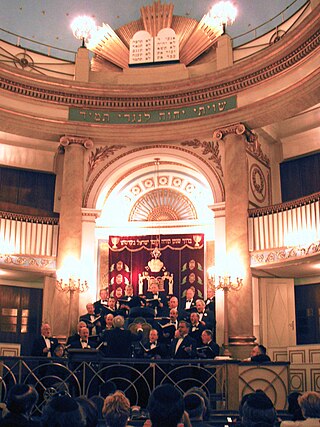
A hazzan or chazzan is a Jewish musician or precentor trained in the vocal arts who leads the congregation in songful prayer. In English, this prayer leader is often referred to as a cantor, a term also used in Christianity.

Don Tourliev "Danny" Maseng is an Israeli-born performer. An actor, singer and writer, Maseng is known as a composer of contemporary Jewish Liturgical music. He currently leads MAKOM LA, a spiritual community in Los Angeles, California.
Meir Finkelstein is a cantor and composer of contemporary Jewish liturgical music. He has composed more than 200 settings for the liturgy, as well as scored numerous television programs, made-for-TV movies, and documentary films. His tunes are sung in many Conservative, Reform, and Reconstructionist congregations. He is considered one of the most popular contemporary Jewish liturgical composers in the United States.

Temple Beth El is a Reform synagogue located at in Bloomfield Township, Oakland County, Michigan, in the United States. Beth El was founded in 1850 in the city of Detroit, and is the oldest Jewish congregation in Michigan. Temple Beth El was a founding member of the Union for Reform Judaism in 1873, and hosted the meeting in 1889 during which the Central Conference of American Rabbis was established.

Congregation Beth Israel is a Reform Jewish congregation and synagogue located at 5600 North Braeswood Boulevard, in Houston, Texas, in the United States. The congregation, founded in 1854, is the oldest Jewish congregation in Texas; and it operates the Shlenker School.
Blue Fringe was an American Jewish rock band from New York City. Formed in 2001 by lead singer Dov Rosenblatt, the band's debut album, My Awakening (2003), sold more than 14,000 copies, an uncommon feat in the limited Jewish market, and became a runaway hit. Since then, the band has released two more albums, 70 Faces (2005) and The Whole World Lit Up (2007), and has performed throughout the United States, Canada, Australia, the United Kingdom, Africa, and Israel. They were credited, along with Moshav and Soulfarm, with advancing Jewish rock in the early 2000s.

Daniel Nichols is an American Jewish rock musician and founder of the band, E18hteen.
The modern Reform Cantorate is seen as a result of developments that took place during the 19th century, largely in Europe. The process continued to evolve in America following the emigration of German Reform Jews towards the end of the century.
Sharon Brous is an American rabbi who is the senior rabbi of IKAR, a Jewish congregation in Los Angeles. She was one of the founders of IKAR in 2004, along with Melissa Balaban, who currently serves as IKAR's Chief Executive Officer, and others. Every year since its founding, IKAR has been named one of the nation’s 50 most innovative Jewish nonprofits by the Slingshot Fund Guide, a resource guide for Jewish innovation. She is also the author of The Amen Effect: Ancient Wisdom to Heal Our Hearts and Mend Our Broken World, a national bestseller.
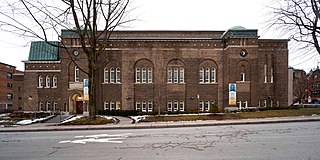
Congregation Shaar Hashomayim is an Ashkenazi synagogue in Westmount, Quebec. Incorporated in 1846, it is the oldest Ashkenazi synagogue in Canada and the largest traditional synagogue in Canada.

Yaakov ("Yanky") Lemmer is an American Chazzan and performing artist. Lemmer performs traditional Hebrew liturgy, Yiddish folk, opera, Broadway, Israeli, and Hasidic music.
Liel Leibovitz is an Israeli journalist, author, media critic and video game scholar. Leibovitz was born in Tel Aviv, immigrated to the United States in 1999, and earned a Ph.D. from Columbia University in 2007. In 2014, he was Visiting Assistant Professor of Media, Culture and Communication at New York University.
Jewish rock is a form of contemporary Jewish religious music that is influenced by various forms of secular rock music. Pioneered by contemporary folk artists like Rabbi Shlomo Carlebach and the Diaspora Yeshiva Band, the genre gained popularity in the 1990s and 2000s with bands like Soulfarm, Blue Fringe, and Moshav Band that appealed to teens and college students, while artists like Matisyahu enjoyed mainstream crossover success.
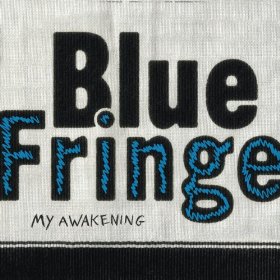
My Awakening is the debut studio album by American Jewish rock band Blue Fringe, released on September 7, 2003. It was one of the first Orthodox Jewish rock releases in the United States, and the band was subsequently credited with advancing Jewish rock alongside Moshav and Soulfarm.
IKAR is a non-denominational Jewish congregation and community founded in Los Angeles, California, in the United States. The congregation was founded in 2004 and is led by rabbi Sharon Brous, who was one of its founders.
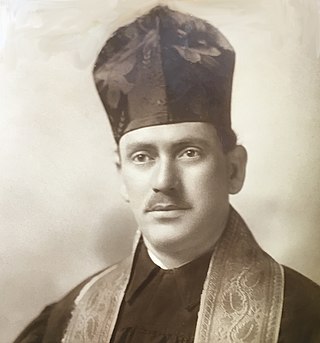
Izso G. Glickstein was a naturalized American cantor (hazzan). Glickstein was born on September 20, 1889, in Chișinău, Moldova and died on April 17, 1947, in Roxbury, Massachusetts. He was a fourth-generation, world-class chazzan and one of the "leading Jewish singers in America ranking with Cantor Josef "Yossele" Rosenblatt and others of equal prominence." He served as Chief Cantor at multiple synagogues including Europe's largest and Leonard Bernstein's childhood synagogue in Roxbury, Massachusetts. He hosted a weekly radio program on Boston's WORL and was heard often on WNAC to popularize Hebrew music. Izso performed hundreds of concerts, was the President of the New England's Cantor's Association, and made multiple recordings of cantorial music.
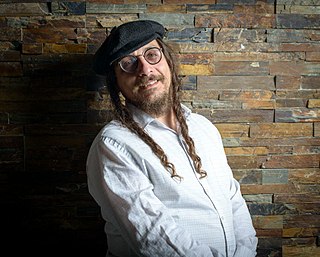
Meilech Kohn is a contemporary Jewish singer. He is most well-known for his song "VeUhavtu".
Surfaces is an American music group based in College Station, Texas. Their music is a blend of surf music, jazz, soul, pop rock, hip hop, reggae, and calypso. They have released six studio albums. Their first independent studio album, Surf, was released in 2017.

Unorthodox is a podcast that discusses news, culture, and politics related to Judaism.

19.99 is the 1998 debut album of American Jewish hip-hop duo M.O.T., which consisted of Hillel Tigay and Andrew Rosenthal. Tigay and Rosenthal conceived the group and album as a legitimate Jewish foray in the steps of groups like the Beastie Boys, but reviewers by and large refused to take the album seriously, instead characterizing it as parody and reviewing it fairly positively as such. 19.99 was a commercial failure; Tigay would later leave the duo, joining Los Angeles congregation IKAR some time after.
References
- 1 2 3 4 Spence, Rebecca (November 23, 2012). "New album attempts to recapture 2,000-year-old sounds from the Temple". The Times of Israel . Jewish Telegraphic Agency . Retrieved December 3, 2023.
- 1 2 Kassel, Matthew (January 7, 2013). "If Bono were a cantor". The Forward . Retrieved December 3, 2023.
- 1 2 3 4 5 Mirkin, Steven (December 11, 2019). "IKAR's rock 'n' roll cantor has a new album". The Jewish Journal of Greater Los Angeles . Retrieved December 3, 2023.
- 1 2 3 4 Trakin, Roy (March 26, 2021). "Rock 'Hazzan' Hillel Tigay shines light on L.A. progressive synagogue where Eric Garcetti, Steven Spielberg are members". Variety . Retrieved December 3, 2023.
- 1 2 Leibovitz, Liel (February 26, 2013). "How would Jesus rock?". Tablet . Retrieved December 3, 2023.
- ↑ Friedman, Dan (December 15, 2022). "For one 1980s pop fan, this Shabbat service is a dream come true". The Forward . Retrieved December 3, 2023.
- ↑ "M.O.T. discography". Spotify . Retrieved December 3, 2023.
- ↑ "Palms Station discography". Spotify . Retrieved December 3, 2023.
- ↑ "Hillel Tigay discography". Spotify . Retrieved December 3, 2023.